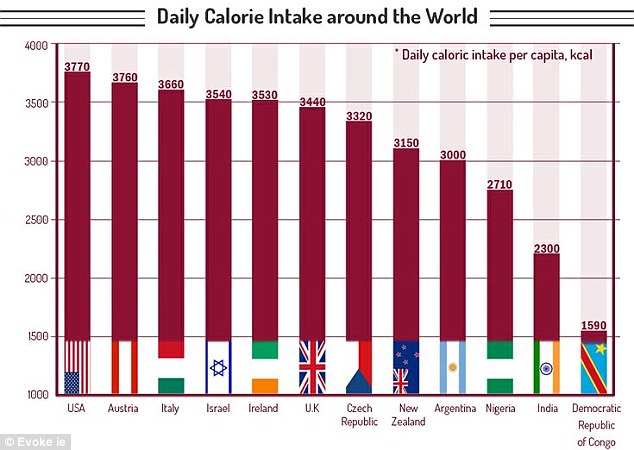
You're not the only one concerned about your weight gain after gastric bypass surgery. Many people suffer from this problem and cannot lose weight again despite trying many different strategies. You can reverse weight gain with some luck. Learn how to reverse weight gain following gastric sleeve operation.
After gastric bypass surgery, laparoscopic sleeves gastrectomy can help you gain weight.
It is not uncommon for gastric sleeves patients to gain weight. A third to a quarter of patients who had gastric sleeve surgery experience weight loss within the first five years. There are many factors that can cause weight loss after gastric sleeve operation. Some people lose weight after stomach stretching. Other patients experience chronic acid reflux after surgery and cannot control this with medication or dietary changes.
To lose additional weight, a revision may be necessary with gastric sleeve. A revision usually occurs because the original surgery wasn't successful enough. A revision may be necessary if the patient doesn't lose weight within the specified time. Another reason could be that there was not enough stomach removed during the initial surgery.

After gastric bypass surgery, it is important to keep your fitness in mind.
Post-operative physical activity can include walking, light jogging, and other activities that will increase your fitness level. After gastric sleeve, your surgeon will recommend the exercises you should do. Focus on low-impact exercises to build your capacity for exercise, such as light jogging, bodyweight movements, and stretching. To create a workout routine that suits your body, work with a personal trainer.
Once you've had gastric sleeve surgery, your new diet and exercise routine are only the beginning. Your mental health is also dependent on a regular exercise program. This will help you feel better, boost your mood, reduce stress and anxiety, as well as lose weight. Keep exercising and increase your intensity gradually.
Managing weight gain after gastric sleeve surgery
After gastric sling surgery, it is possible to manage weight. Talk to your doctor about all the options. You may also join local support groups. These support groups may have members who have had similar procedures to you. These groups will offer tips and advice about diet and exercise. You can lose weight even if you don't need surgery.
While your surgeon will be able to discuss the potential risks and benefits of gastric bypass surgery, it's important to make sure you don't gain weight. You are more likely to experience side effects from certain foods. Avoiding these foods is not enough. It's also worth considering starting an exercise routine. Regular exercise, even if you don't lose weight immediately, can help you shed more weight and combat the harmful effects of obesity. While it may take some time, gastric sleeves patients can achieve their desired weight.

Side effects of weight gain from gastric sleeve op
There are many complications for those who gain weight after having gastric sleeve. The stomach pouch is so small it can hold only half a cup of food for the first few days. It will eventually expand and allow for larger meals. As a result, if you gain weight, it is possible to lose the weight that was lost. It is possible to prevent weight loss by eating too much. To minimize the risk of complications, you should follow your doctor's post-operative instructions carefully.
After your gastric sleeve surgery, you should avoid gaining more weight after several months. However, it is possible to regain some of your lost weight even after the procedure. This surgery cannot be reversed, but it can reduce the chance of weight gain. It is possible to prevent weight gain by exercising regularly and eating well. Reduce the amount of food you eat to lose weight.
FAQ
Can I eat the fruits of my intermittent fasting diet?
Fruits are great for you. They provide vitamins, minerals, fiber, antioxidants, and other nutrients. But, they can also contain sugar that can spike blood glucose levels. This can lead to insulin resistance, weight gain, and even diabetes. If you're looking to lose weight with an IF diet then you should choose fruits that are low in glycemic.
What Amount Of Exercise Is Needed For Weight Loss?
There are many factors that influence the amount of exercise required to lose weight. These include your gender, age, body type and how heavy you are. However, generally speaking, most people need at least 30 minutes of moderate physical activity five days per week.
The American College of Sports Medicine recommends that you do 150 minutes of moderate intensity aerobic activity per week. This should be spread over three days.
You can lose 10 pounds by doing 300 minutes of moderate-intensity exercises each week, for example. This includes activities like jogging or running, swimming laps and biking.
Consider doing 20 minutes of vigorous exercise thrice a week if you are just starting out. This could be lifting weights, sprinting, jumping rope, and fast walking.
Aerobic exercise is a great way to burn calories and build muscle mass. Muscles can burn more calories that fat. So building muscle while losing weight may help you achieve your goal faster.
What is the best activity for busy people?
The best way to stay fit is by doing exercises at home. You do not need to join a gym. You can perform simple exercises at your home without needing expensive equipment.
You will need a pair, mat, chair, timer, and some dumbbells.
Consistency is the most important thing. If you are absent for a few weeks, you could lose your motivation.
Start by lifting weights 3x per week. This could be squats and lunges as well push-ups, pull ups, pull-ups (dips, curls), etc.
Once you have mastered the basic movements, it is possible to move on to other types such as running and jumping rope, skipping or yoga, Pilates, dance, swimming, weight lifting, tennis, golf, playing basketball, soccer, volleyball, badminton or squash.
Make sure you choose the right exercise program for your needs. Exercises that take too much energy, for example, might not be a good fit for someone who works long hours.
If you are a night owl, then you should consider exercising during the evening rather than early morning.
Be aware of your body and rest when you feel tired.
How do I lose weight
People who are looking for a way to look good and lose weight are the top goals. People desire to lose weight because they want to live longer, feel healthier, and live longer. There are many options for losing weight. You can choose from cardio training or strength training. Each exercise has its advantages and disadvantages. Walking, for example, is the best way of burning calories. If you want to build muscle mass and burn calories, however, lifting weights is the best option. In this article, we'll discuss how to lose weight and which exercise to choose.
The first thing to consider when losing weight is what kind of diet plan you should follow. Not necessarily that you need to eat less. Rather, you should eat fewer processed food and avoid junk foods. Aim to consume no less than 2200 calories each day. Your calorie intake should be reduced if your goal is to lose weight fast. This will make it easier to lose weight.
You can lose weight quickly by getting active. Exercise can help you lose calories and speed up your metabolism. To lose weight effectively, you must combine exercise with a healthy diet. You will lose weight by exercising. Regular exercise will help you burn more fat. Regular workouts are a way to stay healthy. They can help you keep fit and prevent conditions such as heart disease, diabetes, hypertension and obesity.
You should walk as much as you can. Walking burns around 500 calories per hour. A walk of 30 minutes per day can help you to burn approximately 1500 calories. Therefore, you will lose 1 pound of fat per week. For 10 minutes, you can run or jog. Running burns approximately 1000 calories an hour. You should run 20 minutes each day if your goal is to lose five pounds in just three weeks.
Combining exercise with healthy eating habits is the best way lose weight. Try to find a balance between these two factors.
Statistics
- Another study found that 24 weeks of weight training led to a 9% increase in metabolic rate among men, which equated to burning approximately 140 more calories per day. (healthline.com)
- One 6-month study showed that simply doing 11 minutes of strength-based exercises 3 times per week resulted in a 7.4% increase in metabolic rate, on average. (healthline.com)
- Among women, the increase in metabolic rate was nearly 4%, or 50 more calories per day (14Trusted Source (healthline.com)
- According to Harvard Health, it's estimated that a 155-pound (70-kg) person burns roughly 112 calories per 30 minutes of weight training (5). (healthline.com)
External Links
How To
How to lose weight quickly
There are many quick ways to lose weight. They are often ineffective and non-sustainable, however. Fast weight loss is possible through diet and exercise. You should eat fewer calories than you burn daily. This means eating fewer calories than what your body burns during normal activities. To lose weight quickly, you need to reduce your calorie intake.
It is best to avoid foods high in fat or sugar, as these can increase your appetite. You should also drink lots of water every day. It helps to keep your body hydrated and maintains your metabolism at its highest. Combine these three things and you will see results faster than ever before!